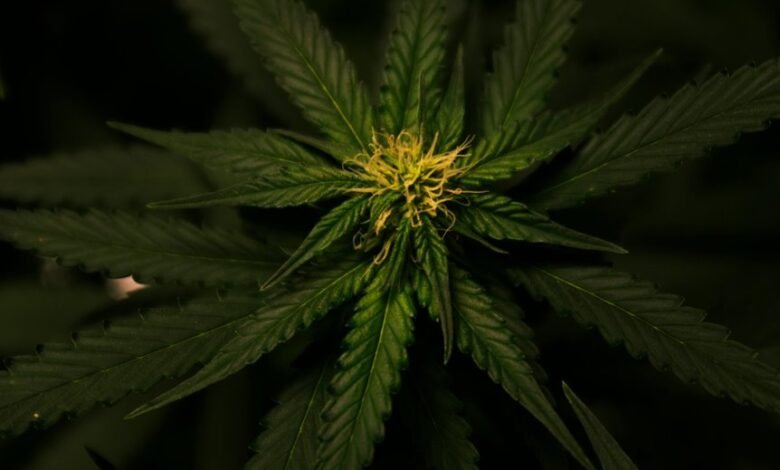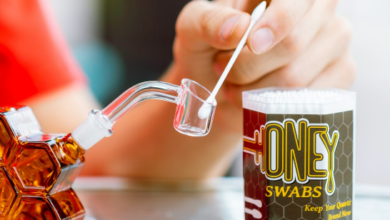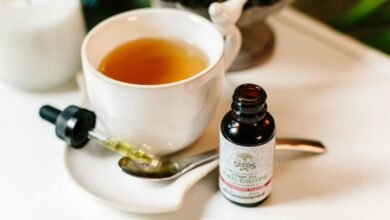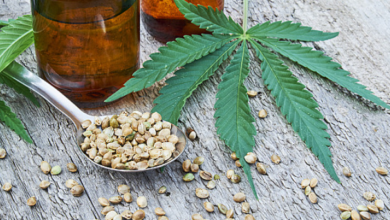Does Delta 8 Have Cbd

The relationship between Delta 8 THC and CBD warrants careful examination. Delta 8 THC is recognized for its psychoactive properties, while CBD is esteemed for its therapeutic effects. Both cannabinoids can coexist in certain products, potentially leading to a unique interaction. Understanding the implications of their combination, including benefits and legal considerations, is essential for consumers. What factors should be considered before choosing products containing both cannabinoids?
Understanding Delta 8 THC
Although Delta 8 THC is a cannabinoid derived from hemp, its chemical structure and effects distinguish it from the more widely known Delta 9 THC.
Delta 8 effects often include euphoria and relaxation, appealing to users seeking a milder experience.
The Delta 8 legality varies by jurisdiction, creating a complex landscape for consumers eager to explore its potential benefits while navigating regulatory frameworks.
Exploring CBD and Its Benefits
Cannabidiol (CBD) is a non-psychoactive compound derived from cannabis that has gained significant attention for its potential health benefits.
Research suggests that CBD may help alleviate symptoms associated with various conditions, such as anxiety and pain, positioning it as a valuable therapeutic option.
Furthermore, understanding the distinctions between CBD and Delta 8 THC is essential for consumers navigating the evolving landscape of cannabis products.
What Is CBD?
CBD, or cannabidiol, is a naturally occurring compound found in the cannabis plant that has gained significant attention for its potential therapeutic properties.
Its cbd origin traces back to both hemp and marijuana sources, where it is extracted for various uses. This compound is celebrated for its non-psychoactive nature, appealing to those seeking the benefits of cannabis without the intoxicating effects associated with THC.
Health Benefits of CBD
The therapeutic potential of CBD has garnered considerable interest in both scientific research and popular wellness trends. Advocates emphasize its potential benefits, including pain relief, anxiety reduction, and improved sleep.
Optimal CBD dosage varies based on individual needs, while common CBD sources include hemp oil, tinctures, and edibles. Understanding these aspects can empower individuals seeking natural alternatives for health and well-being.
CBD vs. Delta 8
While both CBD and Delta 8 are derived from the cannabis plant, their chemical structures and effects on the body differ significantly.
CBD extraction focuses on isolating cannabidiol for its therapeutic benefits, promoting relaxation without intoxication.
In contrast, Delta 8, a psychoactive compound, can induce mild euphoria.
Understanding these distinctions is essential for consumers seeking specific effects and benefits from cannabis-derived products.
The Chemical Structure of Delta 8 and CBD
The chemical structures of Delta 8 and CBD exhibit distinct molecular compositions that contribute to their differing effects.
While Delta 8 is known for its mild psychoactive properties, CBD is non-psychoactive and primarily recognized for its therapeutic benefits.
Understanding these structural differences is essential for comprehending their unique applications and effects in both medicinal and recreational contexts.
Molecular Composition Differences
Molecular composition serves as the foundation for understanding the differences between Delta 8 THC and CBD.
Despite notable molecular similarities, such as their shared chemical formula of C21H30O2, structural variations significantly impact their functionality.
Delta 8 features a double bond on the eighth carbon chain, while CBD has it on the ninth, leading to distinct interactions within the body's endocannabinoid system.
Psychoactive Properties Comparison
Although both Delta 8 THC and CBD share a similar molecular framework, their psychoactive properties diverge sharply due to variations in their chemical structures.
Delta 8 THC exhibits notable psychoactive effects, often resulting in euphoric user experiences, while CBD remains largely non-psychoactive.
This distinction plays a critical role in how users perceive and utilize these compounds for varying needs and preferences.
Therapeutic Benefits Overview
Understanding the therapeutic benefits of Delta 8 THC and CBD requires a nuanced examination of their chemical structures.
Both compounds exhibit distinct therapeutic applications, yet their combined effects can enhance their individual properties.
Research indicates that Delta 8 may complement CBD's non-psychoactive benefits, potentially offering relief from anxiety, pain, and inflammation.
This synergy fosters a broader understanding of their therapeutic potential within holistic approaches.
How Delta 8 and CBD Interact in the Body
When considering the interaction between Delta 8 THC and CBD in the body, it is essential to examine how these two compounds influence the endocannabinoid system (ECS).
Their cbd synergy may produce joint effects that enhance user experiences.
Understanding dosage guidelines and product combinations can optimize therapeutic interactions, allowing users to explore the potential benefits of integrating Delta 8 and CBD for a more balanced experience.
Potential Benefits of Combining Delta 8 and CBD
The combination of Delta 8 THC and CBD presents a unique opportunity for users seeking to maximize the therapeutic potential of cannabinoids.
This pairing may yield enhanced relaxation and promote a sense of well-being. Research suggests that the synergistic effects of these compounds can lead to improved mood and reduced anxiety, offering a more balanced experience for individuals exploring holistic approaches to health and wellness.
The Legality of Delta 8 and CBD Products
While the legal landscape surrounding Delta 8 THC and CBD products has evolved, it remains complex and varies significantly across jurisdictions.
Delta 8 legality is often contentious, with some states explicitly prohibiting its sale. Conversely, CBD regulations generally exhibit a wider acceptance, although they still differ by region.
Consumers must stay informed to navigate these shifting legal frameworks effectively.
Choosing the Right Products: Delta 8 vs. CBD
How can consumers effectively choose between Delta 8 and CBD products?
Product selection hinges on individual consumer preferences, including desired effects and legal considerations.
Delta 8 may offer a milder psychoactive experience, while CBD is often favored for its therapeutic benefits without intoxication.
Understanding these distinctions enables consumers to make informed decisions that align with their personal values and health goals, promoting freedom of choice.
Safety Considerations When Using Delta 8 and CBD
What should consumers know about the safety of Delta 8 and CBD products?
Delta 8 safety remains a concern due to limited regulation and potential contaminants.
Users should be aware of CBD interactions with medications, as both substances can influence the body's metabolic processes.
It is essential to consult healthcare professionals before use, ensuring informed decisions that prioritize health and well-being while exploring these products.
Conclusion
In summary, the relationship between Delta 8 THC and CBD is akin to a dance, where each cannabinoid complements the other's rhythm—Delta 8 providing a gentle euphoria while CBD contributes therapeutic benefits. This synergy may enhance the overall experience for consumers. However, it is essential to navigate the complexities of legality and product quality carefully. As interest in these cannabinoids grows, informed choices will be paramount to safely harnessing their potential benefits.






